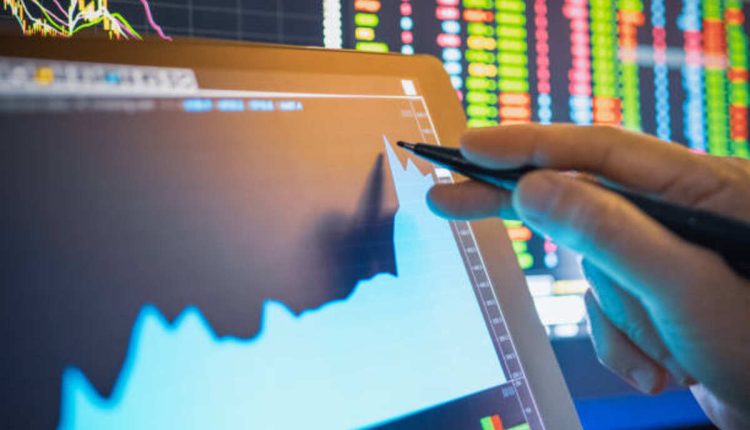Investing in forex requires an understanding of its risks. Foreign currency trading is a highly volatile market where leverage can significantly magnify both losses and gains. The actual Interesting Info about forex robot.
Leverage in forex trading allows you to expand your buying power by trading with only a small deposit, known as a margin. Margin FX trading increases stakes by using borrowed funds, but you are ultimately responsible for any losses incurred as part of trading on margin.
It’s a global market.
The foreign exchange (also referred to as forex or currency market) is one of the world’s premier financial markets, serving to facilitate global trade and investment activities. Investors use it to speculate on currency price movements while protecting themselves against depreciation risks; trading hubs operate 24 hours per day, with spot markets accounting for the majority of total trading volume while forwards and futures markets comprise smaller portions.
The forex market is an over-the-counter global marketplace where traders buy and sell currency pairs. It is the largest marketplace worldwide, with daily volume exceeding $6 trillion, and features participants such as banks, non-bank financial institutions, central banks, hedge funds, and individual retail speculators trading pairs of currency against one another.
Most forex trading is conducted between large institutional traders, such as banks, fund managers, and multinational corporations; however, individual retail traders are becoming increasingly accessible to this market through low-cost online brokers that operate under local regulation and offer segregated accounts with negative balance protection.
It’s open 24 hours a day.
The forex market operates 24/7, five days a week, giving traders access to news that may have no immediate bearing on stock markets and allowing them to take advantage of market trends, whether rising or falling. Trading can be risky and requires dedication.
The Forex market is an international, decentralized network of banks and financial institutions that trade currencies. It is the world’s largest and most liquid market, with daily volumes over $5 trillion. Currency trade occurs between pairs; the most commonly used pairs include the U.S. dollar, euro, Japanese yen, British pound sterling, Australian dollars, and Swiss francs.
Trading can continue 24 hours a day due to different international time zones and the fact that forex trading takes place over networks of computers rather than physical exchanges. Markets initially open in Australia and Asia, proceeding through Europe and North America before finally closing, with New York closing for business at 6 p.m.
It’s a leveraged market.
Forex trading is a leveraged market, meaning traders can open positions with more significant sums than they deposit themselves. To do this, funds must be placed into what’s known as a margin account to act as collateral for loans from brokers; how much leverage an individual trader can utilize will vary based on the market and broker.
Leverage can be an invaluable asset to traders, enabling them to reap substantial returns with just a small deposit. However, the risk of investing in leveraged instruments needs to be carefully understood.
The forex market is an international, decentralized marketplace for trading currencies. Open 24 hours a day, five days a week, it offers profits on price differences among various global currencies. It also plays an integral part in economic policy decisions and political events affecting currency prices worldwide. Some major corporations with foreign operations use the forex market to protect themselves against currency price fluctuations, while traders profit from speculation on currency movement trends.
It’s a speculative market.
Speculation differs from investing in two key ways. First, it carries with it an elevated level of risk while offering substantial potential gains. Profitable speculators look for patterns in market prices to predict when they might rise or fall. They often trade quickly, sometimes holding onto assets they purchase for less than one year before selling or holding onto them as investments.
Speculators use strategies and shorter timeframes in an attempt to outperform longer-term investors in performance. While accepting higher risks of loss from their speculative investments, these investors firmly believe that the profits generated will more than compensate for losses sustained during such speculations.
Speculation is most prevalent in foreign currency trading, though it can occur in any market that features significant price fluctuation – this includes real estate and derivatives such as futures contracts. While investing speculatively is often perceived negatively, some have become very wealthy as a result. Furthermore, speculating can help startups secure funding when other sources cannot do so; venture capitalists sometimes invest in start-up tech companies because their venture is perceived to be risky yet potentially very profitable.
It’s a risky market
Forex trading can be an extremely risky venture yet potentially lucrative if you understand its inner workings and how trades are executed. Many factors influence currency values, including central bank interest rates, inflation rates, economic growth projections, and natural disasters.
On the forex market, exchange rates fluctuate continuously. This can cause huge losses and gains at once. To remain effective, it’s crucial that emotions are kept under control so that sound decisions can be made without emotional reactions. Furthermore, it would be prudent to utilize stops/limits and establish a trading plan.
Interest rates also significantly influence currency prices; they dictate how much people invest in each one. Higher interest rates increase demand for currencies, making them more robust against others. However, they can also lead to inflation, so it is essential to monitor this level.










